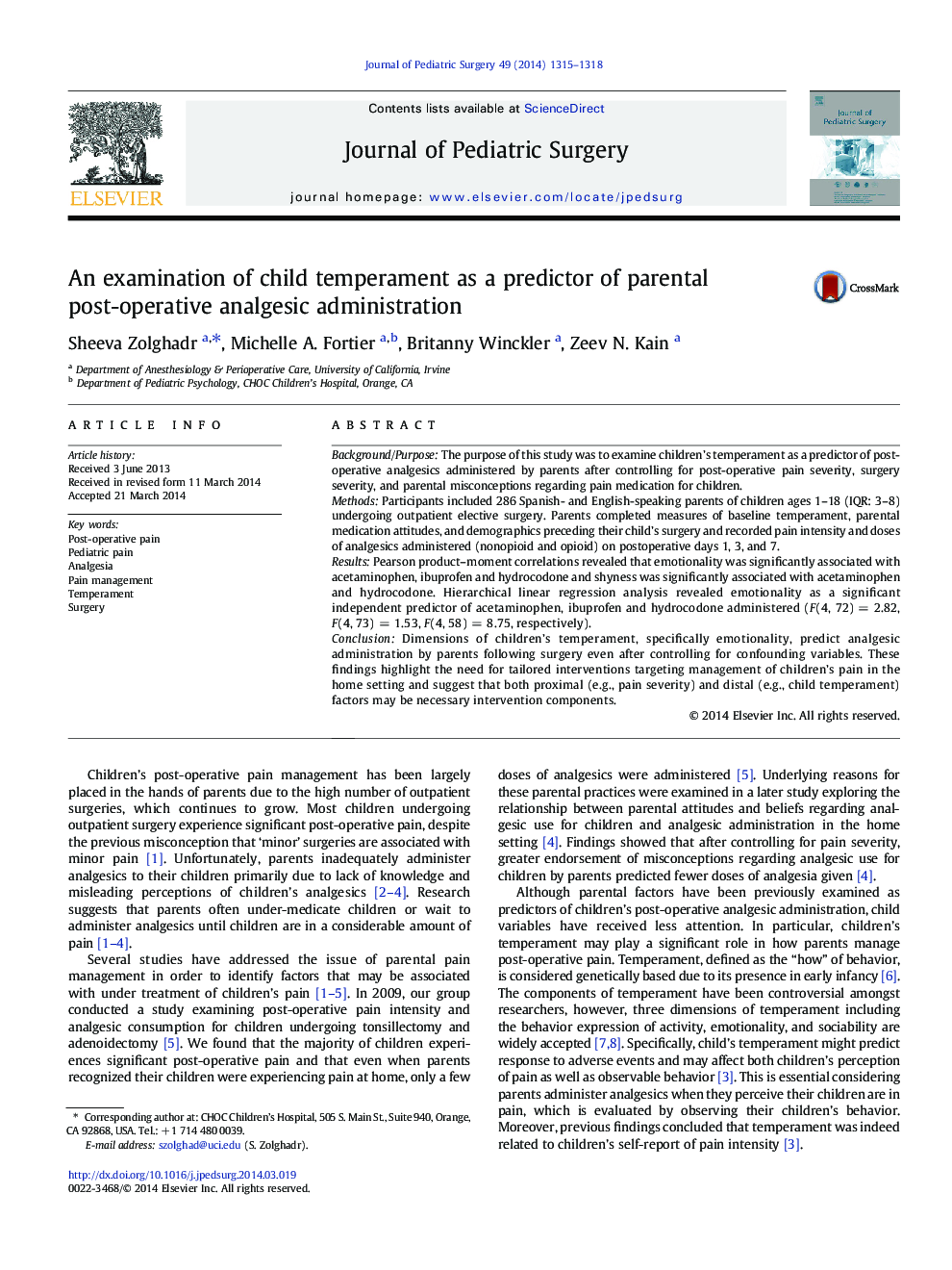| Article ID | Journal | Published Year | Pages | File Type |
|---|---|---|---|---|
| 4155796 | Journal of Pediatric Surgery | 2014 | 4 Pages |
Background/PurposeThe purpose of this study was to examine children’s temperament as a predictor of post-operative analgesics administered by parents after controlling for post-operative pain severity, surgery severity, and parental misconceptions regarding pain medication for children.MethodsParticipants included 286 Spanish- and English-speaking parents of children ages 1–18 (IQR: 3–8) undergoing outpatient elective surgery. Parents completed measures of baseline temperament, parental medication attitudes, and demographics preceding their child’s surgery and recorded pain intensity and doses of analgesics administered (nonopioid and opioid) on postoperative days 1, 3, and 7.ResultsPearson product–moment correlations revealed that emotionality was significantly associated with acetaminophen, ibuprofen and hydrocodone and shyness was significantly associated with acetaminophen and hydrocodone. Hierarchical linear regression analysis revealed emotionality as a significant independent predictor of acetaminophen, ibuprofen and hydrocodone administered (F(4, 72) = 2.82, F(4, 73) = 1.53, F(4, 58) = 8.75, respectively).ConclusionDimensions of children’s temperament, specifically emotionality, predict analgesic administration by parents following surgery even after controlling for confounding variables. These findings highlight the need for tailored interventions targeting management of children’s pain in the home setting and suggest that both proximal (e.g., pain severity) and distal (e.g., child temperament) factors may be necessary intervention components.
